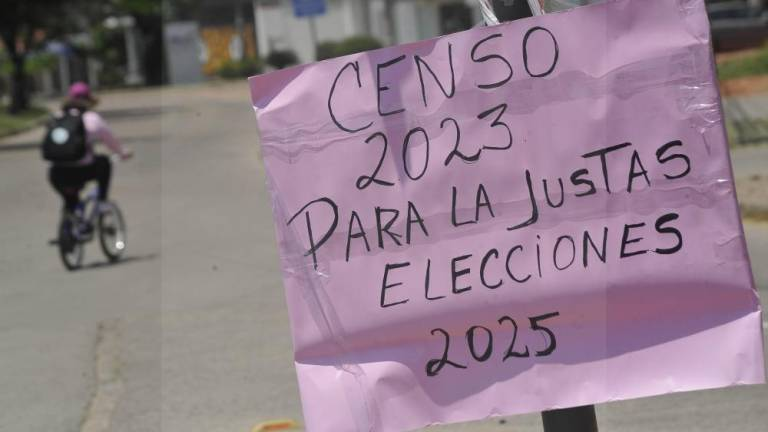Santa Cruz Initiates Indefinite Strike Against Bolivian Government Over Census
Sign reading “2023 Census for Fair Elections 2025”, displayed in front of protest blockades. Image source: Página Siete/APG.
The city of Santa Cruz, Bolivia leveraged an indefinite strike against the federal government’s decision to delay an overdue population and housing census on Saturday. The city, one of Bolivia’s agricultural and economic powerhouses, is challenging the Bolivian Movement for Socialism (MAS) government’s decision to postpone the census until 2024.
The census has become a political battle in determining the central government's power and the balance between Bolivia’s two major cities, La Paz and Santa Cruz. The government’s justification for delaying the census is alleged “damage caused by the pandemic.”
According to the Bolivian constitution, the distribution of seats in the Chamber of Deputies depends on the population density of the country’s nine regions. Hence, this census has an inherent political dimension. Bolivia’s tax structure is also distributed among the different departments by population density. Updated census information is essential for accurate resource distribution within the country.
Santa Cruz demands that the census be carried out in 2023, allowing for the results to be applied in the 2025 elections. It is estimated that the recount will give the region three more representatives.
Should the census be postponed until 2024, census data from 2012 would determine the number of representatives for each region during the 2025 election cycle. Data that is outdated by over a decade would allocate political power that inaccurately represents cities like Santa Cruz, experiencing both economic and population booms.
The census is also important in redesigning the electoral districts. Currently, the vote in rural areas is stronger than it should be since the 2012 census does not account for migration patterns from rural regions to main cities for more than a decade. MAS is stronger in rural regions.
Right-wing political opponents of MAS, criticize the delay of the census as an effort to maintain current electoral districts, and not upset the power balance.
La Paz, Bolivia’s capital, is characterized by the mining industry and is the bastion for MAS powered by its politically involved indigenous communities. Santa Cruz, on the other hand, is characterized by agribusiness and the hydrocarbon industry, where its indigenous population is much smaller and less politically powerful than La Paz’s.
Santa Cruz was the first region to protest the MAS-led government’s decision. Forming the Santa Cruz Civic Movement, Governor Luis Fernando Camacho called on Santa Cruz citizens—cruceños—to block roads and stay home from work in two initial strikes. Given Santa Cruz’s status as an economic behemoth, the strikes were a challenge the federal government could not ignore.
Luis Fernando Camacho, at the time right-wing opposition leader, after requesting the resignation of Evo Morales on November 10, 2019, in La Paz, Bolivia. Image source: Getty Images/Javier Mamani
Other regions in Bolivia have joined in Santa Cruz’s demand for a 2023 census. Major cities, like La Paz and Cochabamba, announced protests and 24-hour strikes. In La Paz, protestors chanted “¡Censo, sí, fraude, no!” (yes to the census, no to fraud!) Violence ensued as pro-MAS citizens began to throw rocks, tomatoes, and dynamite at demonstrators.
Police shut down the protest. The governor of La Paz, Iván Arias, noted how “unfortunate it was that the police would defend those who were violent while repressing peaceful protestors.” He reiterated his determination in calling for the census.
“We have to keep mobilizing for the census in 2023,” he said. “And we won’t back down, not even a millimeter.”
In response to widespread protests, the MAS-led government announced a “Plurinational Meeting for the Consensus on the Census” to be held Friday in the city of Cochabamba. The attendees of the meeting include the mayors and governors of several Bolivian cities and regions, according to Deputy Minister of Autonomies Álvaro Ruíz. Several governors, including Camacho and Arias, have stated they will not attend or are uncertain.
“I don’t know if we should go,” Arias said. “What is our objective in going there? To have violence waiting for us when we arrive?”


